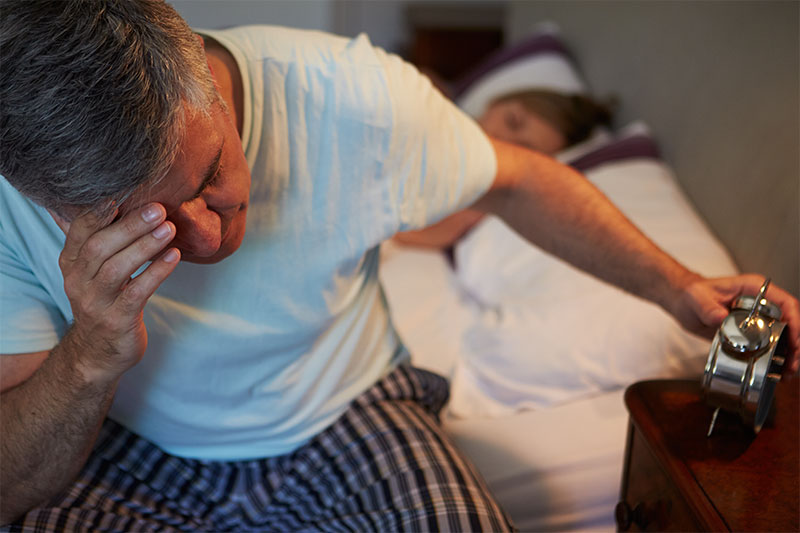
I Wake Up Tired…
Why do I still feel tired every morning even though I’ve slept eight hours?
If you are routinely waking up and still feeling like you didn’t get enough sleep, you may be suffering from sleep apnea. Patients who have this condition stop breathing briefly numerous times throughout the night, anywhere from five to dozens of times each hour. Every time that one of these apneic episodes happens, your brain will wake you slightly to restore a normal breathing pattern. Most people don’t even realize this is happening, but it prevents you from getting sufficient sleep. This causes you to still feel tired when you wake up, regardless of how many hours (you think) you’ve slept.


How does a lack of sleep affect my body?
When you don’t get enough sleep, you’ll experience a number of negative effects on multiple body systems. You’ll feel foggy, which may affect your ability to focus or make you irritable or depressed. Depending on the degree of your fatigue, you may even have trouble safely performing basic activities, such as driving a car.
It’s also worth noting that sleep apnea deprives your body of sufficient oxygen in addition to breaking up your sleep, and that causes inflammation throughout the body. Although the precise relationship remains unclear, this may be one of the factors underlying the apparent connection between sleep apnea and serious health issues like stroke, heart disease and even an increased risk of sudden death.
What can I do to get a better night’s rest?
Fortunately, you don’t have to resign yourself to a life of fatigue. Effective sleep apnea treatment is within reach, and we can help you access the best option for you. An increasing number of patients are turning to oral appliance therapy for a treatment that is easy to incorporate into their lives. With this approach, you wear a plastic device similar to a mouthguard that is customized to hold your jaw or tongue in a position that keeps the soft tissues away from the airway opening that they might otherwise block. Oral appliances are much more comfortable than a CPAP mask, which is another common treatment for sleep apnea.
